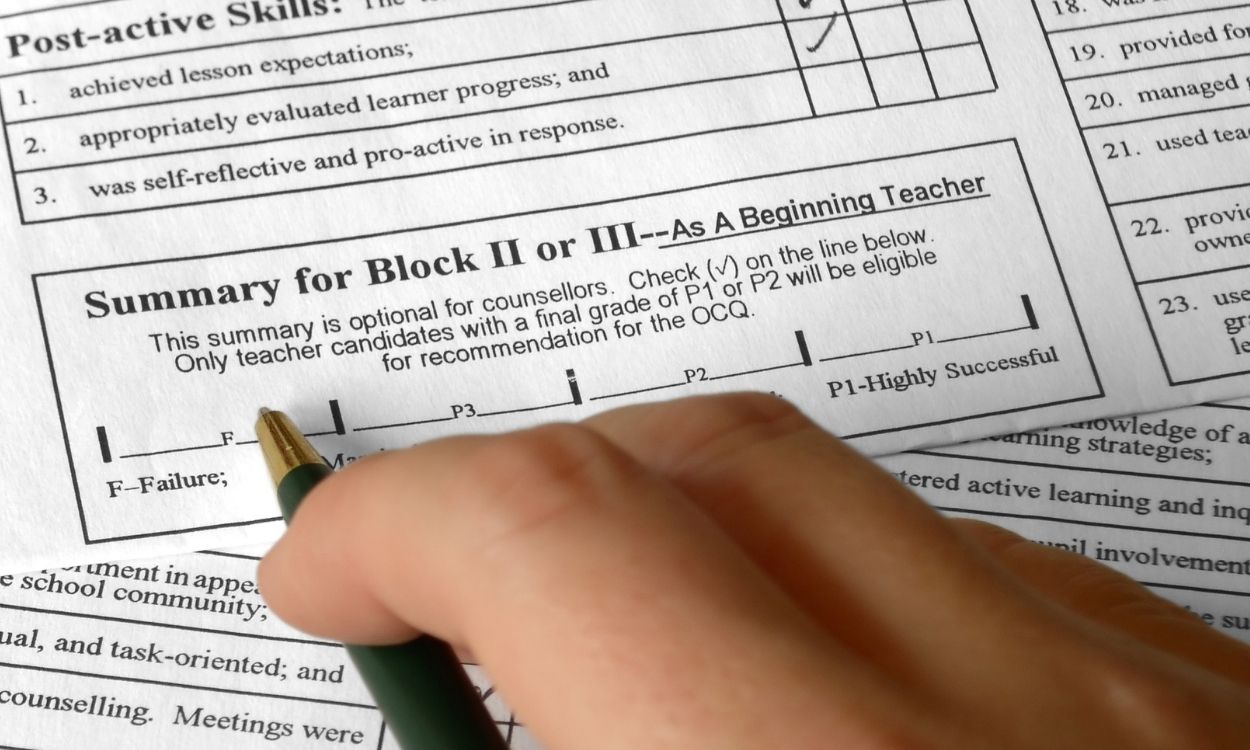Schools are made up of hard working individuals that have a variety of roles to help meet the needs of all students. These employers range from the caring bus driver focused on making sure students arrive at the school safely; to the teacher working extra hours to help her students succeed. Have you ever wondered, “what do educational assistants do?”
An educational assistant is an essential employee in the field of education that works directly under the supervision of a teacher and/or an administrator with the goal of supporting students by providing small group and one on one instruction and activities to those in need. These individuals can work in a variety of settings from: public schools, private schools, religious facilities, healthcare centers and daycares.
Are you looking for a career change? Do you enjoy working with children and making a difference in their lives? Does it bring you happiness to see the spark in the eye of a child that just learned something new? If so, let’s take a look at the joys and satisfaction that comes with being an educational assistant.
What is Needed to Become an Educational Assistant?

Imagine waking up in the morning and knowing you have a purpose to make a difference in the life of someone else. Imagine knowing you will teach someone something new. Imagine knowing you are going to be a role model for a younger generation.
That’s exactly what educational assistants do. They make decisions that have a lifelong impact on those that cross their path each and every day. Their goal is to assist the teacher in the classroom by providing instructional supports that supplement the academic curriculum. So, what is the background needed to be an educational assistant?
Educational assistants need to first possess a high school diploma. However, more and more employers are requesting their educational assistants to have continued education training that supports their job description. An associates degree can make the difference in landing a job.
A foundation in a few courses is important in a certificate program for educational assistants. These courses need to focus on the skills needed for the given job of educational assistants.
Child development and growth courses will open up your eyes to how children are able to function at different stages in their life. This allows you to know if milestones are being met at appropriate times and how to adjust your techniques in helping the child learn.
A foundations course in teaching is also important. This allows the educational assistant to know what teachers are looking for, how lessons are set up and how student growth is determined.
Classroom management is another course that is focused on heavily in most certification programs. It is important for educational assistants to know how to handle a group of students properly with the latest trends and ideas.
Lastly, a course in social and emotional education is typically recommended. Knowing how to handle students and encourage interaction is important in daily activities and learning.
Funding can play a role in the type of qualifications required for educational assistants. For example, if a school operates with Federal Funding from Title I, that school is required to hire individuals with at least two years of schooling that leads to a degree and has a teacher assistant certification to supplement the additional educational requirement.
Title I is a program that was designed to help lower and disadvantaged students meet the high standards and needs of academics. The program provides support and funding to schools that follow the program. School-decisions along with added professional development opportunities are part of the Title 1 program of making sure all children show growth and are successful academically.
Educational assistants will begin their career under the close supervision of an experienced teacher or administrator. This hands-on experience is essential to provide real life experiences needed to be successful. In addition, many organizations will provide continuous training to supplement their educational assistants as their career advances.
What is the Work Environment of an Educational Assistant?

Educational assistants have a very welcoming environment. They are typically in a school, healthcare or daycare setting. Most of the day is spent indoors supplementing the daily activities and instructional lessons of the teacher or supervisor. In addition, educational assistants may be asked to handle tasks such as watching the children on the playground or helping with lunch duty assignments. Furthermore, educational assistants may start the day on a school bus to provide assistance to the driver. This is more standard in Special Education or private facilities.
In a traditional classroom setting, the educational assistant will be working in one main classroom. The classroom will be set up by the teacher in a way that best promotes learning to the students that enter the room. For example, if it is older students, you may find desks or tables for work time. There may be more comfortable chairs to relax or take a break on. There may also be an area for electronics and even sensory.
In an elementary aged classroom, teachers have a few more elements in the classroom environment. Not only do they need a workspace of tables or desks; but, they tend to have a library or reading corner set up. They may even have a play area that has a kitchen set or cars and blocks. These added areas do impact the classroom environment and take up learning space. A valued educational assistant will be able to share their thoughts and opinions with the teacher on what is working and what is not working in the classroom environment set-up.
Educational assistants usually follow the same work schedule as the organization that has hired them. Educational assistants in the school setting usually work Monday-Friday on a day schedule. They will have weekends, holidays and even summers off. Educational assistants that are working in a healthcare or daycare setting may be required to work a more flexible schedule. These places may even require weekends, evenings, holidays and even nights.
It is important to read job descriptions and ask questions if considering a career as an educational assistant. Each job is unique and different.
What is the Salary and Job Market Outlook for an Educational Assistant?
Educational assistants typically have a salary lower than teachers and administrators. This is usually in part to less requirements and college required for the job. According to the US Bureau of Labor Statistics, teacher assistants make an average annual salary of $26,970 per year and can expect a job growth rate of 4% through 2028.
Educational assistants may work both full or part time. Full time employees can expect to have health care insurance, retirement and other benefits to supplement their regular salary provided by their employer.
It is important to note that the job market is also showing an increased trend in educational assistants needing to work from home more than before. With traditional classrooms and teachers turning towards remote instruction, the need for support virtually online is increasing, too. Educational assistants are still helping the teacher by working in ‘break out’ rooms and monitoring classes for participation. They can also help provide techniques for movement breaks and sensory needs.
Also, many employers offer incentives to educational assistants. They may reimburse them for extra training that will provide a positive impact on their everyday duties. This additional training increases work performance which is a positive perk to employers that look to pay extra to employers that look for additional training.
What are Important Skills and Qualifications Needed to be Successful?
There are additional skills and qualifications that will help educational assistants be successful. These skills and qualifications are very similar to those needed by teachers. Most colleges that offer teacher preparation programs will also offer educational assistant certification programs, too. Also, check with your local community colleges.
First, an educational assistant needs to be hard working. Children are counting on educational assistants to help them learn. All children learn differently. It takes a skilled educational assistant to be able to reach the needs of a diverse learner.
Secondly, an educational assistant needs patience. Children may not be responsive on the first try. It may take numerous tries and lots of repetition before they grasp a concept. Patience will be key in working with diverse children for a wide variety of backgrounds.
Thirdly, an educational assistant needs to be driven. Working with children can be stressful and busy. An educational assistant that is driven and can take initiative on completing daily tasks will have more job satisfaction than an educational assistant that needs constant reminders and supervision to complete their assignments.
Finally, passion is another skill and qualification that will lead to a successful career as an educational assistant. If you do not have true heart and love for what you are called to do, you will not perform at 100%. You will suffer and so will the students. A true, successful educational assistant will show passion each and every day.
Related Articles – What do Educational Assistants Do?




